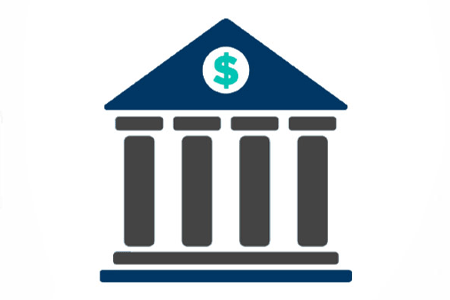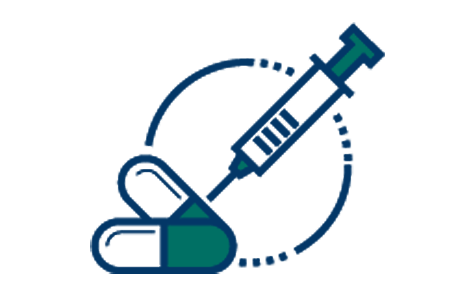Trust building helps teams step into ambiguity, stay committed to managing the unknown with confidence, and embrace change as an opportunity to learn, grow, and do great work together.
Psychological Safety Training
Home > Our Leadership Development Solutions & Services > Leadership Development Topics > Psychological Safety Training
Psychological Safety Training for Leaders Drives Stronger Engagement & Better Results
Foster trust, creativity, collaboration, and innovation across your organization.
Psychological safety at work is a shared belief that anyone on a team can speak up or make mistakes without fear of embarrassment, rejection, or punishment. And a lack of psychological safety in the workplace has serious business repercussions.
Our research shows that teams with psychological safety perform better and have less interpersonal conflict. Without it, people don’t feel comfortable speaking up and instead hold back their concerns, stifling innovation and increasing the risk of failure.
But team members need to feel accepted for who they are and free to ask questions, raise issues, or experiment with new approaches.
Psychological safety training for leaders is crucial. It helps managers create an environment where employees feel safe to share concerns, admit mistakes, offer ideas, and try new things. Including our research-based psychological safety training content as part of your leadership development initiatives can build trust and enable teams to make bigger contributions, boosting overall organizational success.
Increase Your People Managers' Ability to Create Psychological Safety With Leadership Development
Nurture Psychological Safety by Developing Trust Within Teams
By leveraging our training, team leaders learn the skills and behaviors that promote a psychologically safe culture at work:
- Asking powerful, open-ended questions, and then listening intently to understand.
- Agreeing to share failures, recognizing that mistakes are an opportunity to learn and grow.
- Using candor, whether expressing gratitude or disappointment.
- Asking for help, and freely give help when asked.
- Embracing expertise among many, versus a “hero” mentality.
- Encouraging and expressing gratitude, which reinforces team members’ sense of self.
Start shaping a culture of trust at your organization. We can deliver our world-class, research-based psychological safety training — or you can.
Psychological Safety Training — Choose Your Delivery Method
You Deliver
You can use our proven content to deliver a workshop or internal training on psychological safety, either online or in person, whichever you prefer:
Deliver targeted training to key leaders or groups — leverage our content on psychological safety to host a half-day training workshop for your teams
Accelerate development across your entire organization with comprehensive access to this content and access to all our leadership topics and solutions
We Deliver
Or, we can incorporate it as part of a larger initiative for your organization:
Combine this with other topic modules and interactive experiences into a customized learning journey
What Our Clients Are Saying
Organizations who have partnered with us to build trust across teams and foster psychological safety in their workplaces consistently tell us the same thing: their experience with CCL made a significant impact on their culture — and their bottom line.
But don’t just take our word for it — take theirs.
During our work with an international financial services client, we helped to develop a common leadership language across the entire organization and build a more collaborative, trusting culture. The company wanted to foster an environment where people could have meaningful, candid, and constructive conversations about performance, in line with its goals of becoming an employer and business of choice.
In a partnership with a pharmaceutical client, our facilitators sought to create a psychologically safe training environment for participants. To signal senior leader buy-in, executives were frequently present during the development experience, but our facilitators also designated key parts of the program as being for participants and facilitators only, to foster more candid discussions.
Let’s Discuss Psychological Safety Training for Your Organization
Our experts are here to help. Let’s have a conversation about how our psychological safety in the workplace training could help support your development initiatives.
Psychological Safety & Trust: Research & Resources
Psychological safety at work can be assessed and enhanced — ultimately leading to a change in your culture that drives collaboration and innovation. Learn key steps for boosting psychological safety in your organization.
Leaders can often subconsciously behave in ways that kill new ideas. Encourage innovation and risk-taking at your organization by avoiding these 9 unintentional behaviors that actually undermine innovation.
Watch this webinar and learn how to assess levels of psychological safety and create more of it to foster greater trust, creativity, collaboration, and innovation across your organization.
Without a coaching culture, the truth often goes unspoken; change only happens during crisis; and courage is a rare quality. Develop conversational skills across your organization to scale a coaching culture and promote truth and courage.
When trust is absent, people hoard information, avoid risks, and talk about — rather than to — one another. Learn the real value of trust in the workplace.
Other Topics Related to Psychological Safety
Package our research-backed psychological safety training with other proven leadership development topics and solutions for a customized, scalable solution perfect for your organization’s unique needs, context, and culture. Related topics include:








